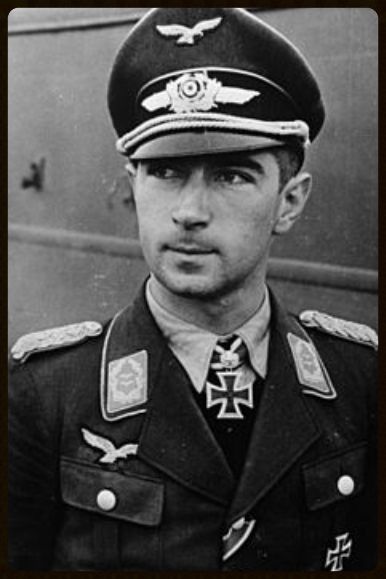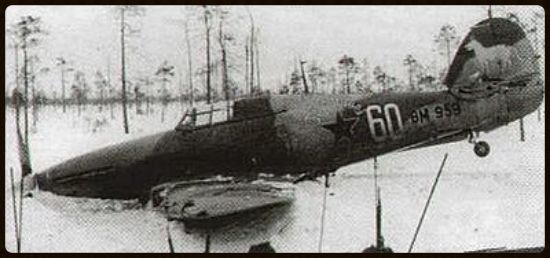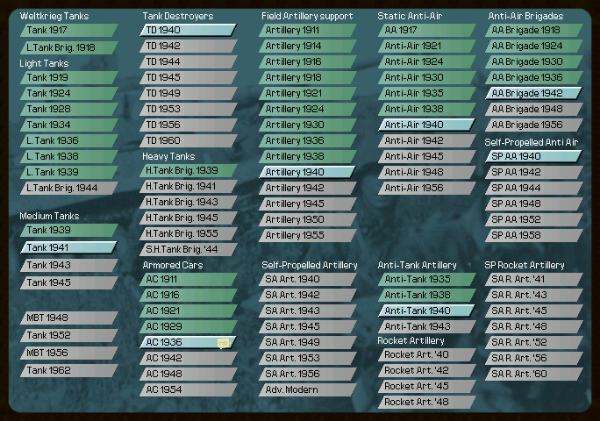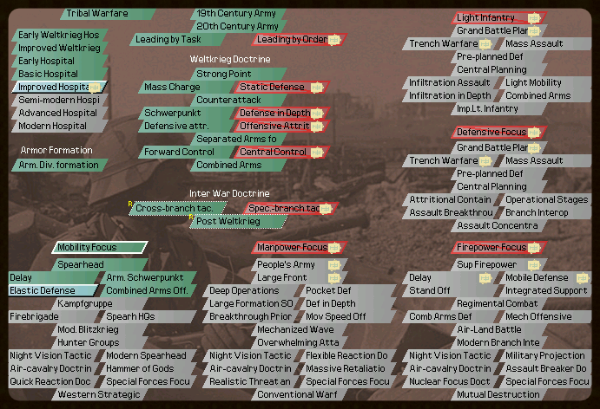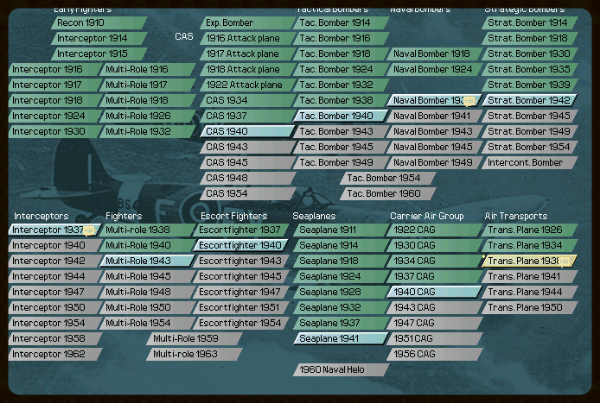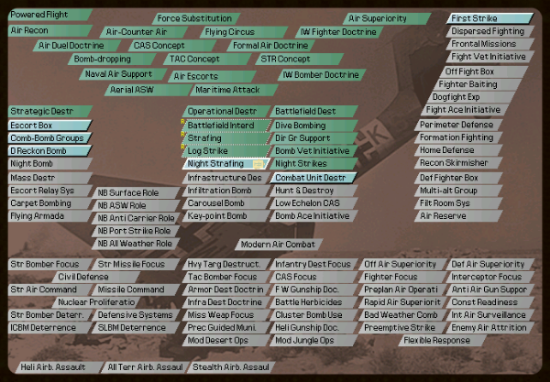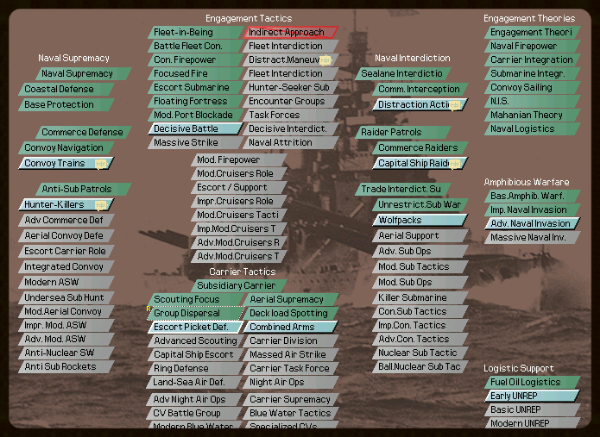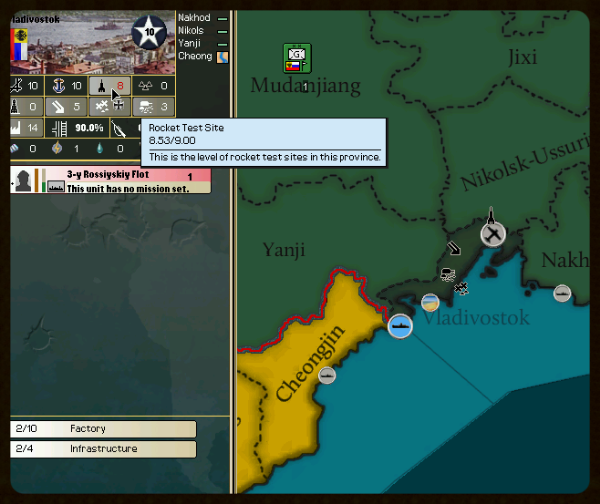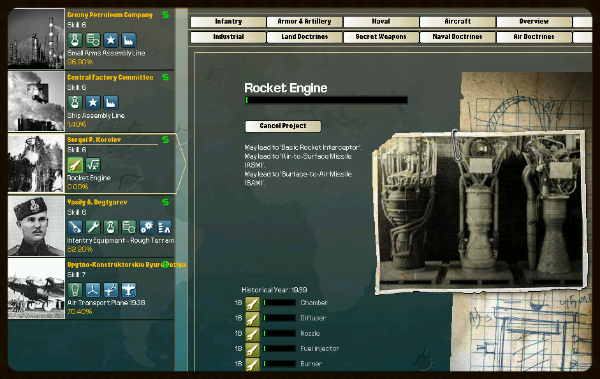I wonder how The Netherlands are still holding on to their neutrality. The queen Wilhelmina (long way she reign) is an aristocratic ruler and family to the German Kaiser so shouldn't she be a target for the reds?
"One and Indivisible" (A Russian Kaiserreich AAR)
- Thread starter Teivel
- Start date
-
We have updated our Community Code of Conduct. Please read through the new rules for the forum that are an integral part of Paradox Interactive’s User Agreement.
You are using an out of date browser. It may not display this or other websites correctly.
You should upgrade or use an alternative browser.
You should upgrade or use an alternative browser.
Wasn't Wilhelmina and her daughter Juliana killed by Dutch Commies?
In any case, assuming we're looking to weaken and eventually partition the Reich between pro-Russian and Pro-Syndicalist forces. I agree that the territories of the Oder-Niesse is a bad idea, not only because of lack of industry but also because you've effectively created a second Polish state in Europe, and you'd may as well give it to Poland/annex it to Russia...
Personally, I share the sentiments of Octosteel, the Oder-Niesse plus the territories of OTL East Germany (Brandenburg, Saxony, Mecklenburg, Brandenburg-Prussia & Saxony-Anhalt) minus Thuringia.
In any case, assuming we're looking to weaken and eventually partition the Reich between pro-Russian and Pro-Syndicalist forces. I agree that the territories of the Oder-Niesse is a bad idea, not only because of lack of industry but also because you've effectively created a second Polish state in Europe, and you'd may as well give it to Poland/annex it to Russia...
Personally, I share the sentiments of Octosteel, the Oder-Niesse plus the territories of OTL East Germany (Brandenburg, Saxony, Mecklenburg, Brandenburg-Prussia & Saxony-Anhalt) minus Thuringia.
Last edited:
You could think of it like a minor occupation. While Russia could annex those regions straight out, this would doubtlessly cause trouble in those territories and among any German patriots such as the German royal family who would no doubt flee to Russia. This isn't to mention the foreign relations fall this would cause by the lack of trust in an run-away expansionist Russia. Russia, as of now, has only taken territory that it had previously owned in the past. (Excluding Manchuria of course.) Therefore I see this working better as occupying Prussia in order to release it in the future.
I would consider occupying up to the Oder-Neisse line as more plausible than up to OTL East Germany. Taking too much would still cause alarms to ring in Paris even if they might think Russia would implode by itself. Besides, they would want as much industry for their own and could threaten Russia to back down, as they see Russia as being too corrupt and incompetent to do anything. This would put Russia in a Catch-22: back down and lose face which would cause internal trouble or not back down and risk war which Russia is doing its best not to start.
I would consider occupying up to the Oder-Neisse line as more plausible than up to OTL East Germany. Taking too much would still cause alarms to ring in Paris even if they might think Russia would implode by itself. Besides, they would want as much industry for their own and could threaten Russia to back down, as they see Russia as being too corrupt and incompetent to do anything. This would put Russia in a Catch-22: back down and lose face which would cause internal trouble or not back down and risk war which Russia is doing its best not to start.
Border redrawing becoming imminent.
I hope you all are looking forward to reading about all that political pain as much as I will probably enjoy writing it.
I hope you all are looking forward to reading about all that political pain as much as I will probably enjoy writing it.
Last edited:
I hope you all are looking forward to reading about all that political pain as much as I will probably enjoy writing it.
This AAR wouldn't be the great story it has become if you took out the politics. Although, a completely military AAR would still be interesting but I find politics has its own type of drama.
Honestly, I sort of like to think of it as a quasi-West Wing based in Russia. . .but with a Czar instead of a president. . .and based in the 1930s-40s. As I said, 'quasi.'
This AAR wouldn't be the great story it has become if you took out the politics. Although, a completely military AAR would still be interesting but I find politics has its own type of drama.
Honestly, I sort of like to think of it as a quasi-West Wing based in Russia. . .but with a Czar instead of a president. . .and based in the 1930s-40s. As I said, 'quasi.'
This. So many times this; let me just say this AAR is awesome.
Chapter 167: Die Dolchstosslegende
Speech to the Reichstag preceding the introduction of the SPD anti-war bill. said:“The war, entered into prematurely and for reasons of little more than Imperial Aggrandizement, has now been lost by yet further Imperial aggrandizement. Refusing to accept this fact, the Imperial Government refuses to even acknowledge the receipt of an entirely fair offer of peace from Paris on behalf of the entire Internationale. Peace on terms that would mean an immediate end to the killing, peace on terms that would mean the retention of all rightfully German territory and a chance to negotiate a firm and proper stand against the real enemy. The old brand of Imperial Autocracy that threatens us all, at home and abroad.
And yet, in spite of all of this, the High Command refuses to accept peace. They claim loudly and forcefully that there has been no such offer. They call the leaked document, which by now many of you have seen, little more than a forgery, rather than the product of a few patriots within the Foreign Office who were determined not to see their countrymen massacred unnecessarily.
They perpetuate this lie, and push for the war to continue only because of their thirst for blood and determination to hold back the tide of history at all costs. Members of the Reichstag, I have nothing but respect for our soldiers, officers, and indeed the High Command, but the belligerence and short-sightedness of the latter will doom us all.
As such, I move that this body resolve to deny any further appropriations to the Government until such time as either an armistice is agreed or we can confirm that genuine offers of peace have been successfully delivered to and acknowledged by Paris.
I understand that this might necessarily lead to some military disadvantage on our part, but I urge all members here to recognise that given the present, hopeless military situation, that is hardly much of a change, and that in all of this our true enemies as Germans are not the French who want little more than an end to the bellicose threats of our Government and the return of territory which is rightfully theirs, but rather the leaders who would sacrifice so many of our sons to appease their own egos and ambitions.”
From the diary of Leutnant H. Knoke said:Bremen
December 21 1939
We touched down from our last sortie of the day at around 18:00 hours.
My Emil kissed the surface of the runway as I cut the throttle, guided in through the vile weather and dying light by the old runway illumination lights used before the war for civilian traffic. That was the one benefit we were gaining as we pulled back further into the Reich. Gone were the unprepared forward grass fields from which we had operated during the offensive against Paris. Now we could fly from prepared strips and civilian aerodromes. Most of JG/51 was now flying from the civilian airports of Bremen now, defending the troops holding the line along the Weser and covering the retreat of the civilian population from West to East.
And defending them we are.
“How many for the day Knoke?!” The inquiry came from one of the ground crew as he helped me out of the cockpit. I wondered for a moment as to why he wouldn’t be directing the question towards the boss but a quick scan revealed that Mölders was already storming off towards debriefing having taxied his plane in what must have been record time.
“Three for Vati" I said, meaning Oberleutnant Mölders, "and another for me.” That brought my count for the last two months to nine. With any luck I will soon be a double ace.
Oberleutnant Mölders, a quadruple ace by the beginning of 1940.“More French Amiots?” he inquired again, a small crowd of enlisted personnel now swarming around me and my aircraft, surveying it and preparing it for service, refueling and rearming.
“No” I said, casting my mind back. The French were indeed still throwing their bombers at our lines with determination, but it had not been our destiny to engage them today. “The British finally committed some of their new fighters to the front it seems, we were forced to engage them several times today.”
“The hurricane?” asked one, “how do they fly?” inquired another.
“They turn well” I remarked as my boots finally hit the tarmac and I began my own inspection of my mount. “And generally perform much better than the French of the Italian machines, though we still have them in dive and climb.” I paused for a moment and flashed a smile “and pilot skill of course.” That got a few laughs from the assembled crew. “Mölders took one in our initial pass, and then we strove to keep the fight in the vertical until he had killed two more. One got on his tail, giving me a chance to put him down as well. Drained my guns though, they’re certainly rugged aircraft.”
I relived the kill in my mind. The British pilot had persisted in his attack even after my first burst of tracer caught him in the wing. His machine guns had still been firing when I had landed a brace of cannon rounds and he had burst into flames before my eyes.
“Looks like one of them had a go at you to Knoke.” One of the engineers called my attention to the rear of my plane. I reviewed my aircraft, it was pitted with the tell-tale signs of shrapnel, but nothing major. I had every confidence that the crews would have it prepared for action by the next morning.
“Probably caught some of the flak aimed at our adversaries during the engagement. The landser are understandably allergic to the site of planes overhead by this point. It would be good if they had better aim though!”
My heart sank with the next comment though. “I’m only going to be able to give you a half load of cannon ammunition for your next sortie though.”
My confusion was immediate “I thought we were due for resupply earlier today?”
“Were, but no such luck. We’re scrounging what we can from Heer units, but there isn’t much to go around at this point.”
That made no sense to me, and I said as much. There was a factory in Bremen that manufactured 20mm ammunition of various types, it was no more than a short truck drive away. When we rebased one of the few upsides, beyond the quality of the airstrip had been the guarantee of our ammunition supply. “Has the factory been bombed?” I asked, incredulous.
They replied that it had not. The truth was far worse.
They informed me that the Reichstag has denied the government funds for the continuation of the war! Further, they have passed a decree dramatically increasing the protection for strike actions, to prevent the Army bypassing this restriction and requiring workers to continue on the job regardless. Already, I was told, there were SPD and other brands of red agitator operating in the city, already partially denuded of its populace. Production had been severely disrupted, and while the army was working to restore order and get the lines running again, the disruption was enough to shatter our already fragile supply lines.
I burst into a series of profanities unbecoming of an officer at that point. I called the cowards in the Reichstag everything from traitors to worse.
They all looked at me, somewhat stunned, many nodding, some simply shocked by my sudden verbal assault. I chose to take advantage of the situation. I have never been a political speaker, but in that moment I was filled with anger and purpose.
“Whatever those cowards and traitors might say, the French are no friends of Germany. Everywhere they go they bring desecration, destruction and barbarism. Just look at the long lines of desperate families, fleeing deeper into the Reich. Do you think they are running from nothing? Do you not remember the stories that the boss told us about his time in Ukraine? The burning of churches? The executions of the educated or noble? Do you not think that will happen here?” I stared them each down in turn. “For them, for our families, and for German honour, we must continue flying.”
Most of them agreed fiercely now, those young faces, so many clearly confused or scared. Still that was no excuse for a lack of courage and resolve.
There was a small whispered dissent. One of the mechanics, who I shall have watched lest he harbour red sympathies posed a question. “But if the war is lost as they say..” he began. Enraged I cut him off.
“Do you see the kill markings on my plane? Those on Mölders’? We have not been beaten!
In the skies, we are bleeding them to death. Were it not for the number of planes we lose on the ground to their advance, we would already have cleared them from the skies. And on land? The army was at the very gates of Paris! The war was over! Only for it all to be stolen from us at the last moment by cowards and traitors.
And even that we might endure, if not for the continued sabotage of cowards, traitors and red sympathisers.
We are not being beaten, we are being stabbing in the back.”
I shouted those words at stupid young men who should have known better than to have had to hear them. They were said in the passion of the moment, but the more I dwell on them the more I realise how true they are.
We have not been beaten, we have been stabbed in the back, and that is a betrayal neither I, nor any loyal German officer or soldier will forgive, nor forget.
Last edited:
- 1
Oh the irony of (alt-)history. This time the legend is actually right. Oh man, Germany is going to be a messed-up place once this war is over, regardless of who wins. Either the Frenchmen win, and impose a stalinist tyranny on the Germans - or the Germans win, and then the political right is going to go all ape on the leftists.
Once the Germans realize they are beaten, expect the political murders to start - the FAUD are probably already gunned up and ready for the coming civil war, given their stances and rhethorics, but some of the more naive SPD deputies who still walk the streets without armed escorts are going to get gunned down in the street by angry junior cadets in retaliation for speeches like the one in the last update.
And when everything falls apart, and the Russians march into Germany from the east, the retreating and shattered troops in the rear areas (that haven't deserted yet) might start to form free corps and hunt down the remaining leftist sympathizers. The hatred against the alleged saboteurs and traitors is going to be strong - there is definitely going to be an ultranationalist and anti-syndicalist underground movement (Kaisertreue Bewegung?) in the areas that don't fall under the French occupation. The Organization Consul of OTL is going to look meek compared to that coming movement. In the French-occupied zone, a Werwolf movement might try to fight the new authorities, and it might well look very similar to the OTL Nazi movement as far as their radicalism is concerned. They might be a tad less anti-semitic though, seeing as how the "Jewish conspiracy" holds up less strongly in this TL than in OTL. (But Russia could actually be seen as being part of the Worldwide Jewish Conspiracy (TM), given how much they focus on capitalist-friendly, bourgeois, egalitarian politics in this TL.)
And the Russians won't really be in a position to step in against those revanchist underground organizations, if they want to have anyone at all to work with, in their zone of occupation. Some comparisons to OTL post-WW2 politics might come in useful, what with the Organization Gehlen, the NATO Gladio rings, and all those other murky schemes involving dubious figures working for the new powers.
Once the Germans realize they are beaten, expect the political murders to start - the FAUD are probably already gunned up and ready for the coming civil war, given their stances and rhethorics, but some of the more naive SPD deputies who still walk the streets without armed escorts are going to get gunned down in the street by angry junior cadets in retaliation for speeches like the one in the last update.
And when everything falls apart, and the Russians march into Germany from the east, the retreating and shattered troops in the rear areas (that haven't deserted yet) might start to form free corps and hunt down the remaining leftist sympathizers. The hatred against the alleged saboteurs and traitors is going to be strong - there is definitely going to be an ultranationalist and anti-syndicalist underground movement (Kaisertreue Bewegung?) in the areas that don't fall under the French occupation. The Organization Consul of OTL is going to look meek compared to that coming movement. In the French-occupied zone, a Werwolf movement might try to fight the new authorities, and it might well look very similar to the OTL Nazi movement as far as their radicalism is concerned. They might be a tad less anti-semitic though, seeing as how the "Jewish conspiracy" holds up less strongly in this TL than in OTL. (But Russia could actually be seen as being part of the Worldwide Jewish Conspiracy (TM), given how much they focus on capitalist-friendly, bourgeois, egalitarian politics in this TL.)
And the Russians won't really be in a position to step in against those revanchist underground organizations, if they want to have anyone at all to work with, in their zone of occupation. Some comparisons to OTL post-WW2 politics might come in useful, what with the Organization Gehlen, the NATO Gladio rings, and all those other murky schemes involving dubious figures working for the new powers.
- 1
I like to imagine that somewhere in a remote and safe location there's a lone man with an eternal grin on his face, enjoying every bit of this great symphony of destruction and terror.
Honestly, he's probably on Team Mosley by now, too.
Honestly, he's probably on Team Mosley by now, too.
I like to think that humans are capable of creating destruction and terror involuntarily all by themselves, without any need for oversight or coordination by lone men in remote locations.I like to imagine that somewhere in a remote and safe location there's a lone man with an eternal grin on his face, enjoying every bit of this great symphony of destruction and terror.
No, I think You misunderstood me. In my mind this man had probably nothing to do with anything. He just enjoys the show.I like to think that humans are capable of creating destruction and terror involuntarily all by themselves, without any need for oversight or coordination by lone men in remote locations.
A lone member of the audience in an almost empty theatre hall, a single tear of joy running down his cheek.
Last edited:
No, I think You misunderstood me. In my mind this man had probably nothing to do with anything. He just enjoys the show.
A lone member of the audience in an almost empty theatre hall, a single tear of joy running down his cheek.
I personally find that to be a weird and sadistic idea. . .
Attalus said:It's never the fault of the German Army
Technically it wasn't. . .but at the same time it was. I wouldn't necessarily call Red-German traitors a very good representation of the German army but at the same time they were still a part of it. Of course, this is ignoring the reckless actions of the High Command but their actions did get their army to the gates of Paris. Overall, for this I think the fault still mainly rests in the hands of the Red Sympathizers.
I think I might have said this before but whatever. "Poor misguided bastards."
You know... I had an idea or two about what was coming, but JodelDiplom basically articulated it far better than I ever could. When Russia comes through Germany, the reaction is going to be absolutely horrific. Eugh. Valois, get your kicks in while you can; there are a few folks with "von" in their name that could stand to be shortened by a head.
(Though, as for the "the partisans might be a wee bit Nazi-ish" point, I think the presence of Bucard in France's cabinet, with him being a raging anti-Semite, might preclude that level of antisemitism from the hypothetical Werwolf.)
Seriously, though, the German army on the field is probably in shreds. Screaming on about how it's all the fault of somebody else is the sourest of grapes - especially when high command was dumb enough to ignore Manstein's "er, what about defending our long salient" memorandum. Stupid, stupid, stupid. It's not like 1918, where the German army, though more or less on the verge of starving, had retreated into its country intact. The Heer had its heart ripped out, and the pilot is going on about how they'd be knocking the Syndicalists back if it weren't for the fact that, um, uh... they're losing?
Oh, I don't know... I just can't help but think that the German army made its bed with this one, regardless of Red perfidy. Like... if they had reinforced the salient, would the French have broken through so decisively? It can't just be chalked up to Syndicalist infiltration. Bunch of whiners! This is the payback for all those years of empire-building in Europe and beyond: the whole house of cards falls on the Reich's head!
(#teammosely)
(Though, as for the "the partisans might be a wee bit Nazi-ish" point, I think the presence of Bucard in France's cabinet, with him being a raging anti-Semite, might preclude that level of antisemitism from the hypothetical Werwolf.)
Seriously, though, the German army on the field is probably in shreds. Screaming on about how it's all the fault of somebody else is the sourest of grapes - especially when high command was dumb enough to ignore Manstein's "er, what about defending our long salient" memorandum. Stupid, stupid, stupid. It's not like 1918, where the German army, though more or less on the verge of starving, had retreated into its country intact. The Heer had its heart ripped out, and the pilot is going on about how they'd be knocking the Syndicalists back if it weren't for the fact that, um, uh... they're losing?
Oh, I don't know... I just can't help but think that the German army made its bed with this one, regardless of Red perfidy. Like... if they had reinforced the salient, would the French have broken through so decisively? It can't just be chalked up to Syndicalist infiltration. Bunch of whiners! This is the payback for all those years of empire-building in Europe and beyond: the whole house of cards falls on the Reich's head!
(#teammosely)
Haha! Well, yes, he would enjoy it immensely.No, I think You misunderstood me. In my mind this man had probably nothing to do with anything. He just enjoys the show.
A lone member of the audience in an almost empty theatre hall, a single tear of joy running down his cheek.
You know... I had an idea or two about what was coming, but JodelDiplom basically articulated it far better than I ever could. When Russia comes through Germany, the reaction is going to be absolutely horrific. Eugh. Valois, get your kicks in while you can; there are a few folks with "von" in their name that could stand to be shortened by a head.
(Though, as for the "the partisans might be a wee bit Nazi-ish" point, I think the presence of Bucard in France's cabinet, with him being a raging anti-Semite, might preclude that level of antisemitism from the hypothetical Werwolf.)
Never underestimate the willingness of angry people to blame the Jews for their misfortune. Teivel has shown us a German army that has been much changed since 1918 - lots of leftists among the officer corps, for one - but I would think that this army at heart still sees itself as the embodiment of true-blooded Prussian and Germanic values, loyal to the person of the emperor, not to parliament or the other institutions; and a bastion against the filthy cosmopolitanism that has infected the Reich since its global ascendancy, obscured the good traditional values that made the nation strong, and blinded its leaders against the Syndicalist rot that weakened Heer and government in the Reich's most critical hours.
The leadership of the coming resistance movement is not going to be Nazi-types - the harshness of Syndicalist repression will unite most political groups and make them look for a moderate common ground. If the Russians provide shelter for a "Free Germany Committee" then there are probably going to be all kinds of people, from reformist SPD types appalled at the Syndicalist brutality, to aristocratic army types. But the guys who risk their heads running missions in the French-occupied part of Germany, are going to be a daring and radical bunch. They will be on the run, the French Securité is going to hunt for them with all its might, their families and friends will face harsh repression and may turn against them, and all the warm words of the Russians and the pamphlets of the committee in Königsberg aren't going to help them when the Securité or their German henchmen knock down the doors in the middle of the night because an informer snitched on them. Those guys will be full of hatred and they aren't going to hold literary circles or nuanced debates to settle on who exactly is to blame for the nation's misfortune. Their vision of a new, liberated Germany will be vengeful and violent. If you look like a leftist, or a sympathizer, you are going to be seen as an enemy, and there will not be a trial but be a bullet with your name on it.
Seriously, though, the German army on the field is probably in shreds. Screaming on about how it's all the fault of somebody else is the sourest of grapes - especially when high command was dumb enough to ignore Manstein's "er, what about defending our long salient" memorandum. Stupid, stupid, stupid. It's not like 1918, where the German army, though more or less on the verge of starving, had retreated into its country intact. The Heer had its heart ripped out, and the pilot is going on about how they'd be knocking the Syndicalists back if it weren't for the fact that, um, uh... they're losing?
Oh, I don't know... I just can't help but think that the German army made its bed with this one, regardless of Red perfidy. Like... if they had reinforced the salient, would the French have broken through so decisively? It can't just be chalked up to Syndicalist infiltration. Bunch of whiners! This is the payback for all those years of empire-building in Europe and beyond: the whole house of cards falls on the Reich's head!
The Heer had its heart ripped out because of Syndie treachery (the events surrounding the French attack against the base of the salient), I think that was the point. Manstein's memorandums are not something anyone outside the General Staff would be aware of. (Until Manstein writes his memoirs.)
He's called Mosley not Moseley or Mosely (those variants sound vaguely Jewish, BTW)(#teammosely)
- 1
Chapter 168: State of the Empire 1940.
Research
Research
Emperor Vladimir Romanov said:"There have, from time to time, been objections to the extent to which I have diverted the Imperial budget towards the support of universities, schools, academies, research institutions or modernization efforts. To respond I would raise not just the obvious benefits that have come from this policy, in terms of improved quality of life or economic activity but also a fundamental question of ambition. Russia has always been under its strongest when it seeks to advance itself, to free itself from backward technology and harness innovation. Pyotr the Great understood this, it is incumbent on us to understand it as well."
Taken from 'War said:
As 1940 dawned, Russia’s academic and intellectual capacity was turned ever more towards preparing for future armed conflict. Industry was well aware of the rumored content of the Imperial Armed Forces Acts of 1940. They knew full well that, if approved, contracts would be going out for a new generation of equipment to begin manufacture by 1941. That being so, 1940 would become a frenetic year for Russian research and development.
On land, by 1940 Russia had already made advances in its repair and logistics infrastructure over and above what had been available a year ago. The time the army was being given to reorganise itself after its continuous campaigning since 1936 was beginning to tell in that respect. Ground was also being made in equipping the experimental naval infantry divisions that were entering the early stages of their formation. In this, some credit must go to the ongoing Canadian military mission with Russia which was proceeding with significant energy, though it must also be pointed out that on their formation Russia’s naval infantry would be a good decade behind their Royal Canadian counterparts.
The most significant advances had come with regard to the Cavalry divisions which had undergone considerable reorganisation and would receive a slew of new equipment. The new concept was based around semi-mechanisation, whereby motor vehicles were introduced into the cavalry division to mechanise the supporting logistics requirements of the division, while motorcycles would augment the reconnaissance function and carry mobile machine-guns. The bulk of the division would still be comprised of a resource which Russia had in plenty, skilled mounted infantry of trained and disciplined mounts.
Of course, the primary purpose of the cavalry was to provide infantry support for the expanding tank corps. Russian tank design continued to advance throughout 1939, with early prototypes of key designs finally finding form in the minds of their designers. The designers at all competing firms were certain however, that further advances could made before final quantity production had to commence.
There had been fewer advances on the doctrinal front. More mundane challenges surrounding reorganisation and expansion of army units drew attention away from creating and training units in more advanced versions of Russia’s spearhead doctrine. Indeed, the recent focus of what advancement had occurred during 1939 had focused on advancing the ability of army units to adapt on the defence, embracing localised delaying actions. Further development would centre on extending this concept into a coherent idea of elastic defence.
While technical advances for the army were continuous and predictable, aviation continued to capture capital, intellectual curiosity and Imperial favour on a grand scale. Not only had Russia’s designers caught up to their European rivals, but in the critical area of fighter design they were now inarguably ahead. New generations of bombers, transports and fighters all continued to be developed and 1940 offered a further last round of improvements before firms would finally discover if their designs were good enough to command the lucrative forthcoming government contracts. For the majority of Russia’s pilots, that moment would be a welcome one, given that most of the Empire’s units continued to fly outdated designs. While de Seversky and Lavochkin were working on high powered monoplane fighters, the chaika continued to serve in many units.
Outdated aircraft were not a block to advances in doctrine however, where the Imperial air-force made advances but remained behind overall. The establishment of better bomber training regimes, as well as tactics and doctrines for optimised strikes against both operational and strategic targets, even at night, were derived from the successes of the Imperial Guard’s bombers in Belorussia and the Middle East.
The Russian navy, still small but busy preparing for the commissioning of a slew of new capital ships in the coming two years, was also focused on refining its training and doctrine prior to the infusion of new ships. Cooperation with Royal Navy continued, but the Imperial Japanese Navy also became a key point of contact and aid as 1940 dawned. Compared to 1939, the Navy could claim a better understanding of how aircraft could actually be handled on a carrier deck. Mundane questions of how they should be launched, dispersed and dispatched on missions proved quite complex training challenges but were overcome by January of 1940. The Navy had also developed an improved doctrine for handling amphibious landings, to facilitate the more effective deployment of its soon to be formed infantry divisions.
This focus on training and doctrine was not matched with an improvement in ship design. Instead, designers endeavoured to time the arrival of a new generation of designs with the completion of the construction of the present generation. Greatly expanded as the shipyards of Saint Petersburg, Sevastopol, Finland and other location may have been, there was not sufficient capacity (nor Government funding) to commence wasteful or precipitous construction.
When that construction started in earnest however, it would be using new and novel means of production. Inspired by ideals brought to Russia by American industrialists, as well as natural economic pressures and Russian innovation, Russia lead the world in applying assembly line techniques to production and was highly competitive in the area of primitive computing. In the face of an ever growing global red league of industrial giants, efficiency remained at the core of the Russia counter ideal.
None of these innovations or advances were publicised at the time of course, in an environment of international suspicion (and given Russia’s own aptitude for industrial espionage) that would hardly have been reasonable. Some however, were subject to an extra brand of secrecy.
One of those projects was the high energy ignition and rocketry test facility established outside Vladivostok. Here, a fortune in equipment and facilities were assembled under various covers and veils of secrecy. The facility was populated by some of Russia’s best and brightest (those that had not already been sequestered for other, even more sensitive projects). The growing community of American expatriates provided a solid base for reinforcing the Russian intellectual capital invested in the project.
They would all come together, beginning from the moment of the facility’s completion in January 1940, to begin work on a series of research and development programs into rocketry and jet propulsion that would hold great promise in years to come.
- 2
Well, I really can't see why Russia couldn't, Soviet Union won the space race in OTL.Russia can into space?
Also, I made a dumb thing:
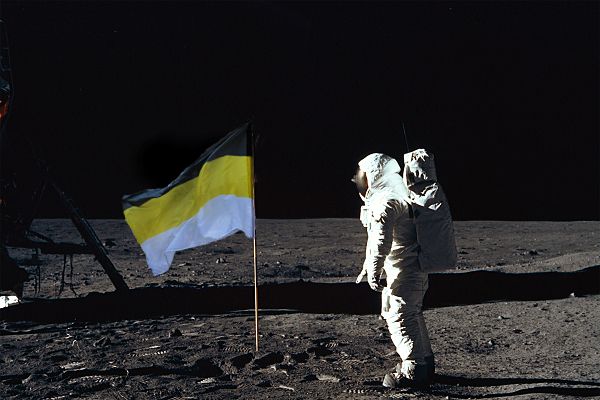
July 1969


